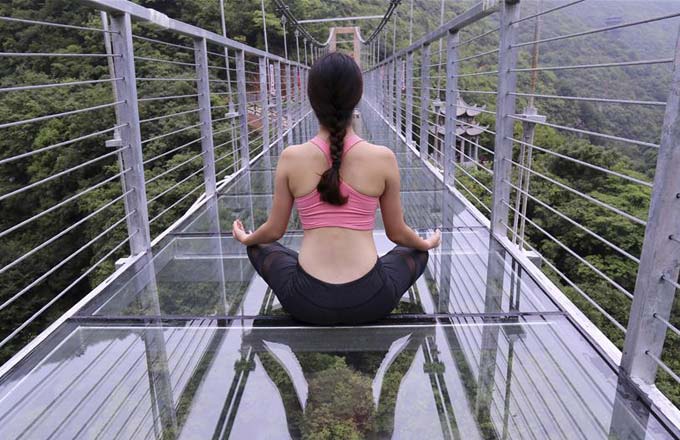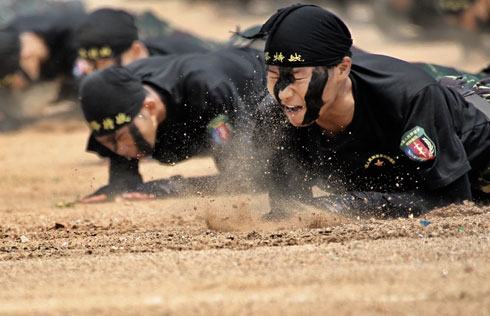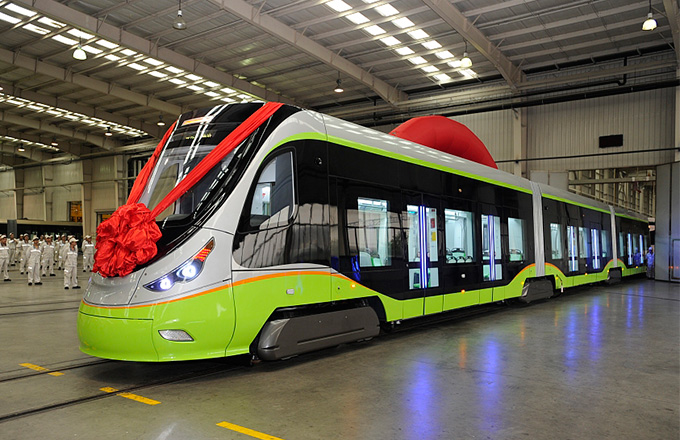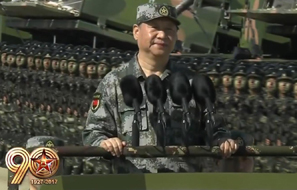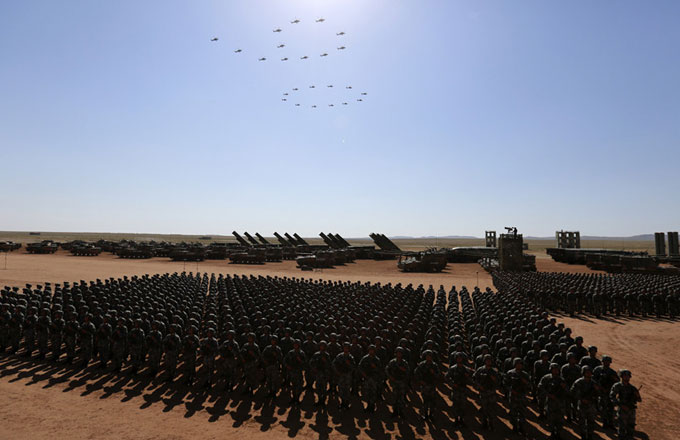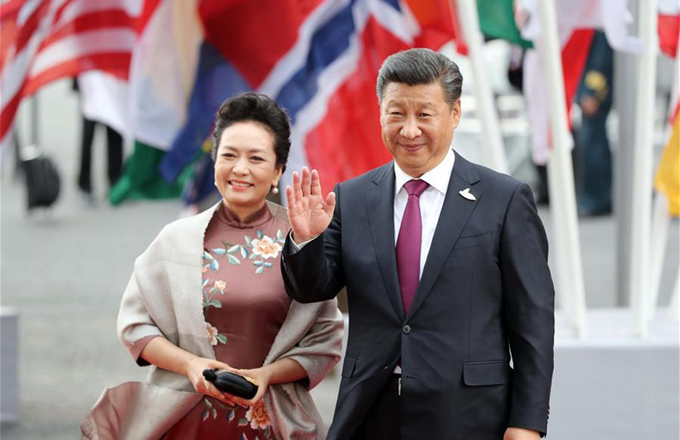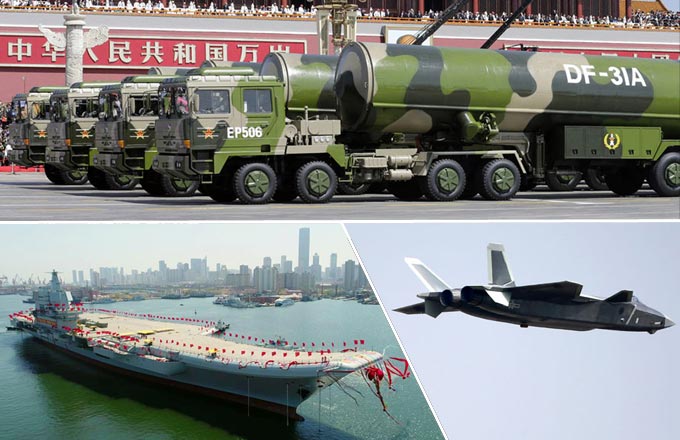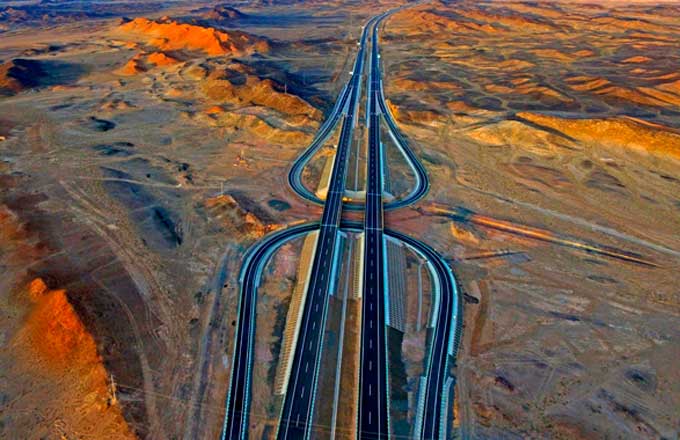Model helps make desert green again




Nations urged to learn from work in Kubuqi to reclaim barren lands
Successful efforts to reforest the once-barren Kubuqi Desert in northern China have boosted regional growth and provided a model for other nations to follow, especially those involved in the Belt and Road Initiative, an international forum was told over the weekend.
The total area of greenery in the desert, the seventh-largest in China, has expanded by more than 6,000 square kilometers in the past three decades.
This has been achieved by getting farmers and herdsmen to plant herbs commonly used in traditional Chinese medicine, improve the soil quality, build solar power plants and develop tourism, Wang Wenbiao, chairman of Elion Resources Group, which has spearheaded the reforestation efforts, said at the sixth Kubuqi International Desert Forum.
The two-day forum held in Ordos, Inner Mongolia autonomous region, was attended by over 250 participants from 35 countries, including former heads of state, senior officials from governments and UN organizations, business leaders and scholars.
Delegates hailed the significant achievements of the Kubuqi model, calling it a "paradigm for fundamental solutions to large-scale projects for combating desertification", according to a statement by the forum organizers on Sunday.
The greening project offers a model for tackling desertification that is innovative, adaptable and sustainable, the statement added.
President Xi Jinping said in a congratulatory message that the work carried out in the Kubuqi Desert had been a success, and that the forum provided an important platform for countries to share experiences in reversing desertification.
In addition to reducing the desert area to 18,600 sq km, the efforts by Elion Resources Group and the local and central governments had helped lift 102,000 people out of poverty, the forum heard.
China has played a big role in global ecological improvement, and the experiences accumulated from the greening of the Kubuqi Desert have importance to other countries, especially those involved in the Belt and Road Initiative, said Jiang Nanqing, a representative in China for the United Nations Environment Programme.
The Kubuqi model shows that getting companies involved can better promote the economy and create jobs while improving the environment, she said.
Vice-Premier Ma Kai said in his opening address on Saturday that China has made great progress in the fight against desertification and is the first country to see desert reduced.
China's total desert area is shrinking at a rate of 2,400 sq km a year, he said, adding that by the end of the 20th century, deserts were expanding by more than 10,000 sq km per year.
The country will continue to innovate in terms of taxation, investment and financing to control desertification, and will involve more parties to join the greening efforts and develop industries, Ma said.
By 2020, China aims to rehabilitate 100,000 sq km of desert and make more than half of the country's reclaimable land green again.


